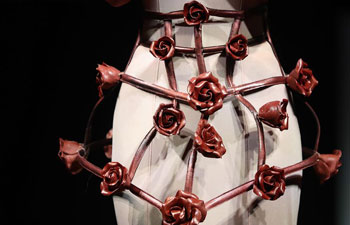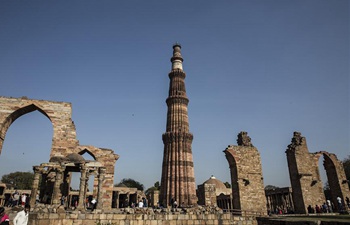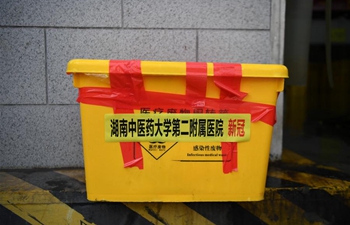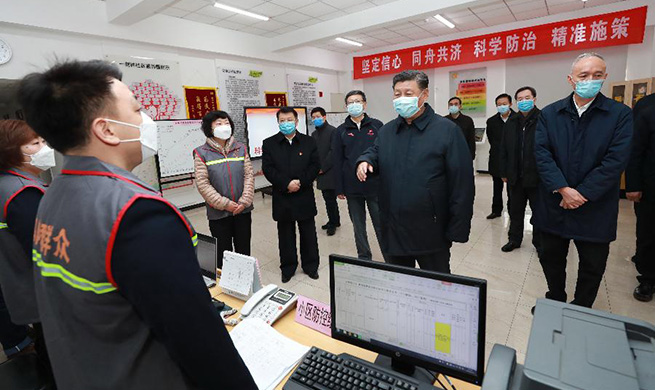by Emad Drimly
GAZA, Feb. 14 (Xinhua) -- Palestinian farmer Maher Abu Daqqa from the Gaza Strip took advantage of Valentine's Day to market his first harvest of roses.
Abu Daqqa, in his 40s, was overwhelmed by his happiness to see workers harvesting roses from his farm in the village of Abasan al-Kabira, east of Khan Yunis, south of the coastal strip.
"My feelings are indescribable after I was finally able to plant rose flowers which have long been forbidden to enter the strip for many reasons," Abu Daqqa told Xinhua as he held a bouquet of red roses.
He added that he was unable to import seedlings of roses from Israel, which only sells roses in small quantities, noting that he managed to bring in from Egypt through Rafah crossing.
Abu Daqqa usually grows roses in his own four-acre farm, which is called the Firdous Farm for Flowers, where he used to grow cloves, lavander and some green flowers.
The rose grower explained that all kinds of flowers need full care, adding that "this requires the availability of electricity and fresh water to ensure the success of the crop."
"Flowers are like humans, and they cannot live in abnormal or inappropriate conditions," he explained.
Abu Daqqa has been impatiently waiting for the day to commemorate the Valentine's Day so that he could sell his roses.
"The return was unfortunately not good enough, because the day falls on Friday, which is an official holiday for the Palestinians in the Gaza Strip," he pointed out.
Gazans started to mark the Valentine's Day when Palestinians in exiles returned from countries like Egypt, Lebanon and Syria after signing the peace accords between the Palestinian National Authority and Israel in 1994.
Internet and satellite channels have also helped to spread the idea among educated secular young people.
The event is not largely observed in Gaza as the majority of people are conservative Muslims who believe that only Muslim holidays should be observed.
But still, there are some who use the occasion to escape the dire conditions of the Israeli-blockaded coastal enclave and the frequent violence with Israel that left thousands dead.
"I grow roses to spread the culture of love and peace among people, even if I do not make big financial gains," Abu Daqqa said, noting that the Gaza Strip was once one of the world's most notable flower exporters.
The cultivation of flowers in the Gaza Strip reached its peak between 2003 and 2006, with more than 40 million flowers exported to European countries.
However, the past four years have witnessed a sharp decline in the exports of flowers from Gaza as farmers only exported about five million flowers annually, before the exports were almost halted last year.
Israel's restrictions on exports from Gaza led to a decline in the cultivation of flowers after farmers inflicted big financial losses for being unable to sell their crops to other countries, mainly in Europe.
"We used to grow roses and export them to Europe, because Gaza flowers are distinguished by their high quality and ability to live longer without being damaged," Abu Daqqa said. "In addition, the soil here helps us produce the finest types of roses."
He said that the cultivation of flowers began to go down after Israel imposed its blockade on Gaza in 2007.
Nevertheless, Abu Daqqa, whose farm is only 500 m away from the borderer fence between Gaza and Israel, insisted on continuing to grow roses, so that "Gaza would not lose its basic characteristic of rose cultivation."
The difficulties that Abu Daqqa is facing include extensive power cuts, the lack of fresh water, and the floods caused by Israeli army.
"All that the farm needs is solar energy, to ensure the availability of electricity, and a desalination plant," Abu Daqqa said, noting that "this will mainly contribute to giving us the ability to continue and produce more roses."

















